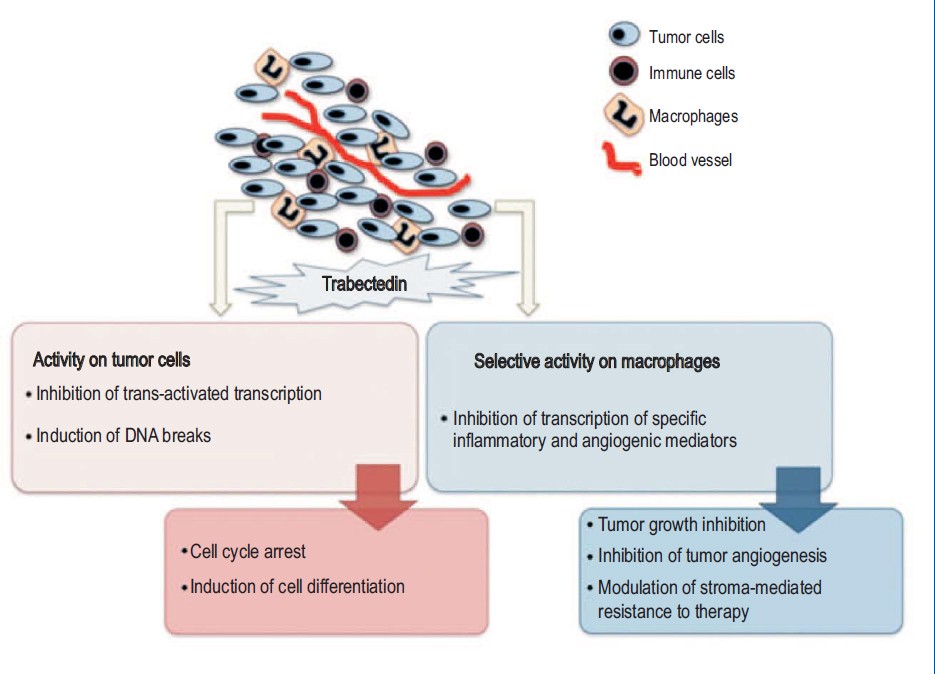*.- Tumor Angiogenesis Unit, Department of Oncology, IRCCS-Istituto di Ricerche Farmacologiche Mario Negri, Bergamo, Italy.
*.- Mouse and Animal Pathology Lab, Fondazione Filarete, Italy and Department of Veterinary Pathology, University of Milan, Milan, Italy.
*.- Laboratory of Cancer Pharmacology, Department of Oncology, IRCCS-Istituto di Ricerche Farmacologiche Mario Negri, Milan, Italy.
 Published : 13 December 2018.
Published : 13 December 2018.Abstract :
Trabectedin is a marine-derived anti-neoplastic drug. Besides targeting the cancer cells, trabectedin has a peculiar activity on the tumor microenvironment with marked effects on the vasculature and the immune response. Since a favorable microenvironment is a key factor in the progression of cutaneous melanoma, we hypothesized that trabectedin might affect the growth and metastasis of this highly aggressive cancer.
This study shows that trabectedin inhibited the subcutaneous growth of the murine melanoma B16-BL6 and K1735-M2. In line with its known activities on the environment of other tumor types, it caused a significant reduction of tumor blood vessel density and tumor-associated macrophages. Trabectedin had a significant antimetastatic activity, inhibiting the formation of lung colonies following i.v. injection of B16-BL6 or K1735-M2 cells.
 The drug was also active in a clinical-relevant spontaneous metastasis assay, where it inhibited lung metastasis when administered before (neo-adjuvant) or after (adjuvant) surgical removal of the primary tumor.
The drug was also active in a clinical-relevant spontaneous metastasis assay, where it inhibited lung metastasis when administered before (neo-adjuvant) or after (adjuvant) surgical removal of the primary tumor.
Relevant to its antimetastatic activity, trabectedin inhibited melanoma cell invasiveness in vitro, associated with increased TIMP-1 production and alteration in cell shape and cytoskeleton organization.
This study shows that trabectedin affects melanoma growth and metastasis, acting with tumor-dependent mechanisms on both the tumor cells and the vascular and the inflammatory tumor microenvironment.

